7 Foods That Fight Cancer
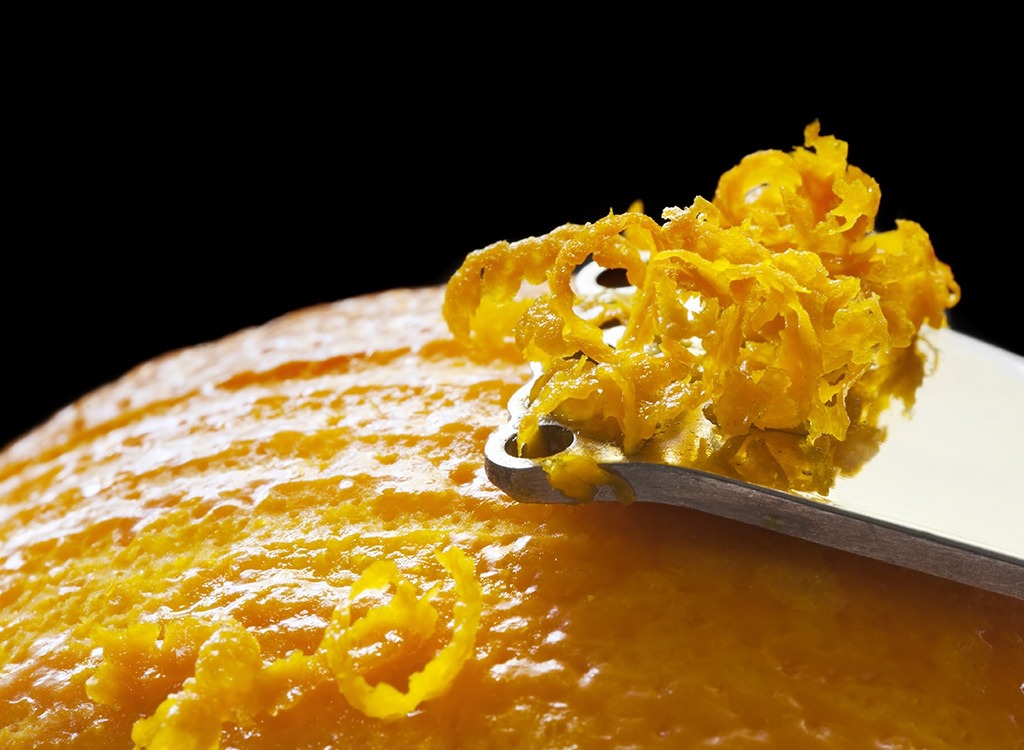
While no single food can guarantee to keep you cancer-free, research has clearly shown that cancer prevention and diet go hand in hand. Cutting back on saturated and trans fats and sugar while sticking to a healthy diet comprised of vegetables, fruits, whole grains and omega-3s is definitely a solid defense strategy. However, certain foods that fall into these categories are nutritional standouts that fight cancer risk better than the rest. Below we reveal what they are, plus, tasty ideas for adding them to your plate every day.
Tomatoes
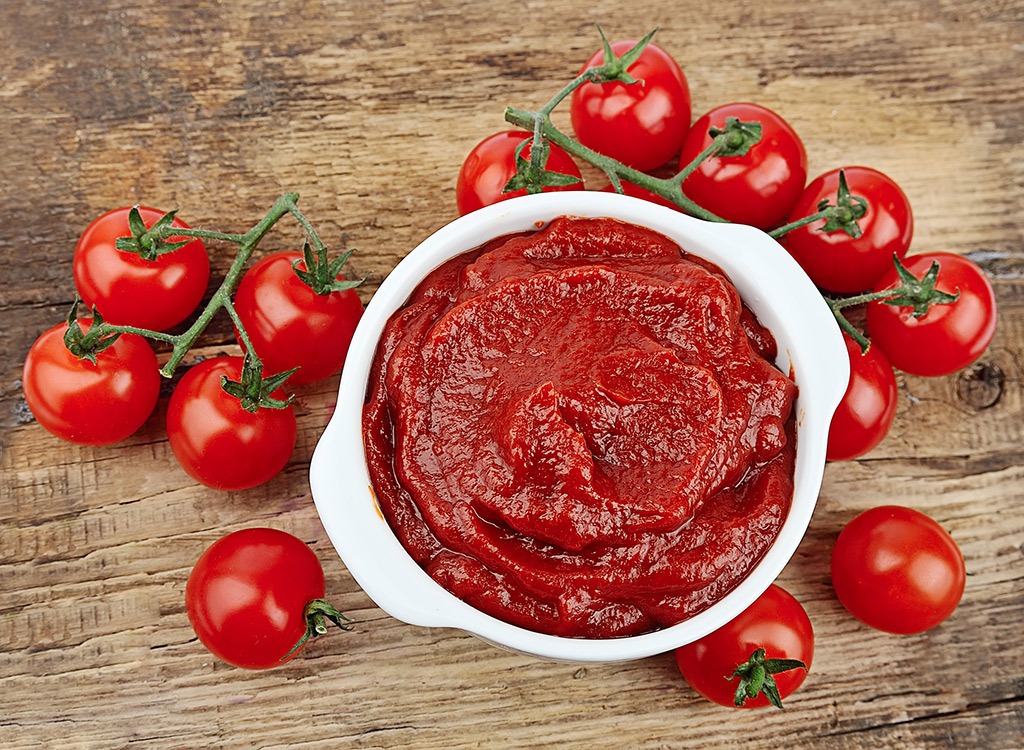
Thanks to their high concentration of the antioxidant lycopene, tomatoes can help protect our DNA from damage that can lead to breast, endometrial, lung, stomach, prostate and renal cell carcinoma cancers, according to researchers.
Best Way to Eat It: Since the heating process increases the amount of lycopene the body is able to absorb, adding organic sautéed tomatoes or an organic tomato sauce to omelets, chicken and pasta dishes is a smart move. It may be pricier, but going organic ensures your tomatoes are free of carcinogenic pesticide residue. For even more protection, opt for orange tomatoes instead of the typical red. According to Ohio State University researchers, people absorb 2.5 times more lycopene from cooked orange tomatoes than from the red plum variety.
Low-Sugar, Whole- Grain Cereals
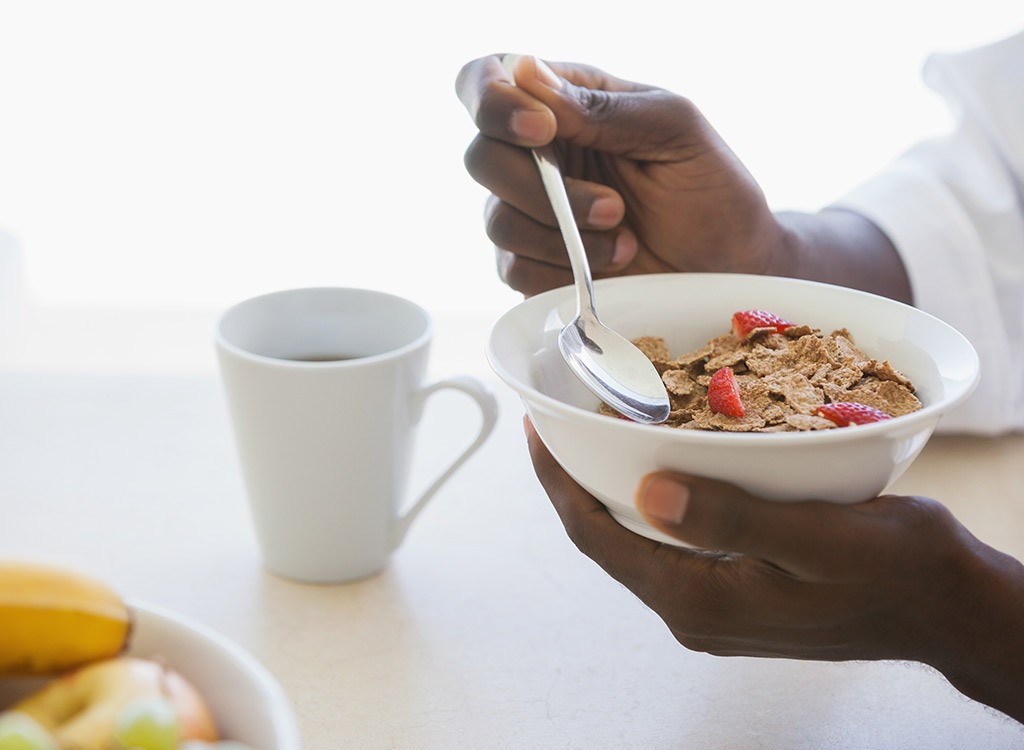
While a sugary cereal can work against your health, filling your breakfast bowl with a fiber- and folic acid-rich variety can have the opposite effect. Research suggests that for every 10 grams of fiber consumed daily, a woman’s breast cancer risk decreases by 7 percent, while consuming the recommended daily allowance of folate can ward off DNA mutations and cut male smoker’s pancreatic cancer risk in half.
Best Way to Eat It: Not only is a bowl of Fiber One a great, fiber-filled way to start your day, a mere half-cup of the stuff serves up 25 percent of the day’s folic acid. To add flavor and up your cancer-protection even further, add a handful of berries to your bowl.
Berries
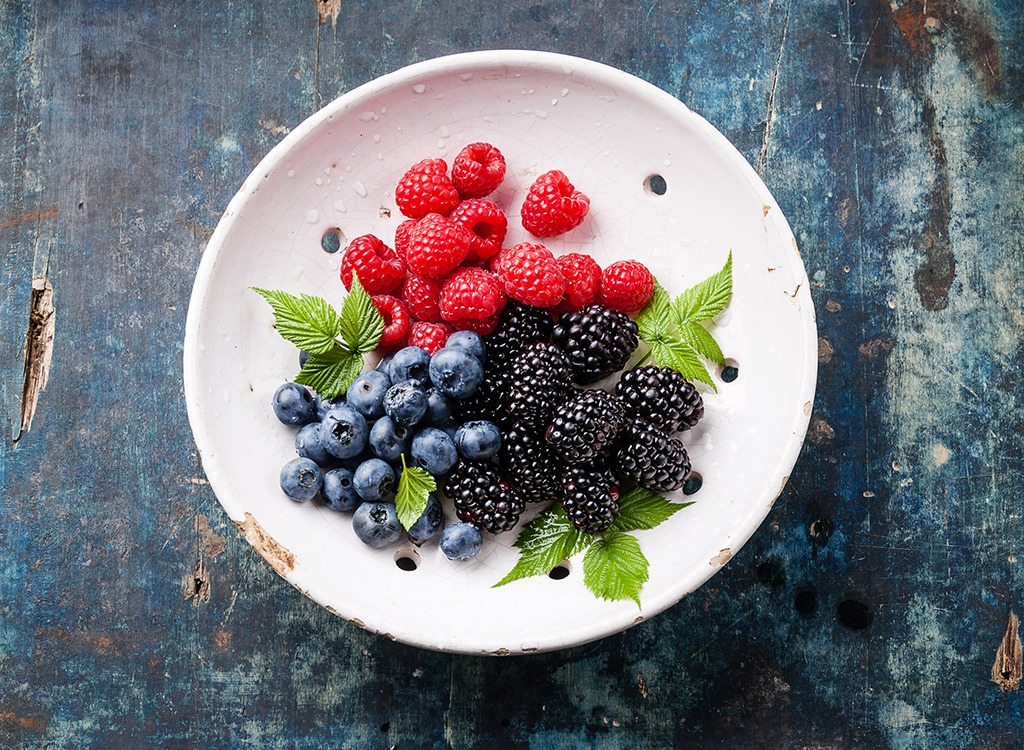
Berries—such as cranberries, strawberries, raspberries, blackberries and blueberries—contain powerful tumor-blocking compounds (like phenolic acids, glycosides and anthocyanins) and antioxidants (like ellagic acid) that can slow the reproduction of cancer cells and stop free radicals from damaging cells. Consuming the fruit is especially effective at warding off colon, prostate and esophageal cancers, studies have found.
Best Way to Eat It: Make every day Thanksgiving by whipping up a healthy, homemade Spiced Cranberry Sauce (we love this recipe by The Detoxinista). Enjoy it with chicken or turkey a few times a week or add it to your lunchtime sandwich for a major hit of flavor. Not a fan of the tart fruit? Add fresh or frozen berries to your fruit salad, pancakes or smoothies to reap the benefits.
Citrus Zest
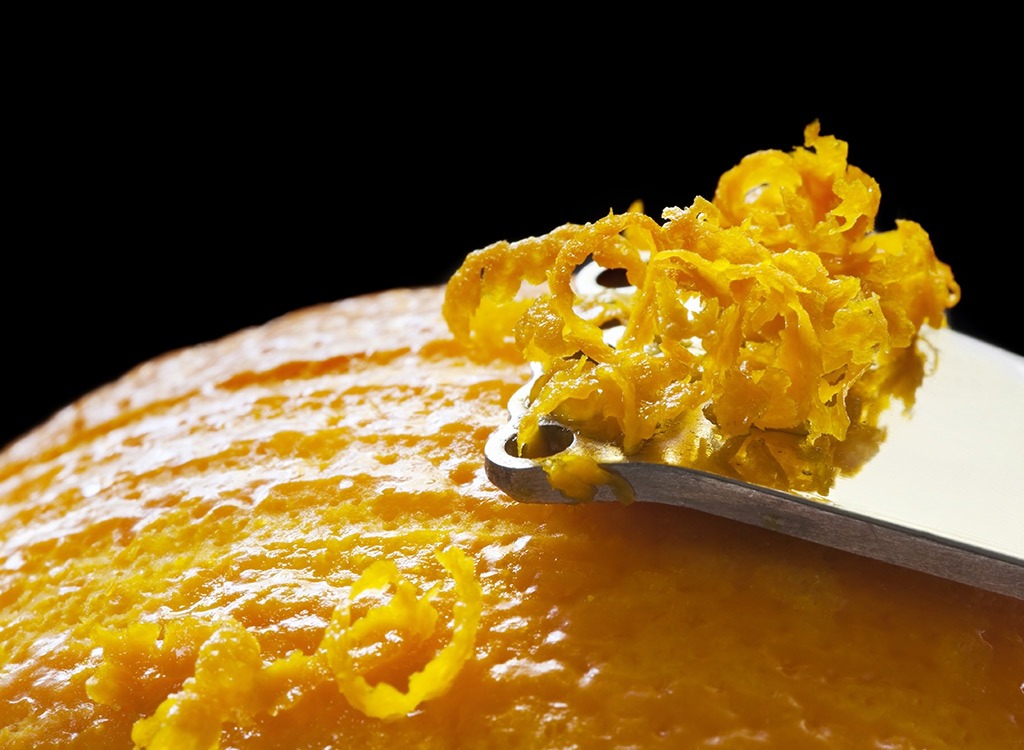
Love oranges, lemons and grapefruits? Great! Keep eating them—just don’t throw out the peels. Why? They contain a powerful compound that boosts the body’s production of detoxifying enzymes. In fact, consuming zest regularly can help reduce the risk of squamous-cell skin cancer by 30 percent and shrink existing tumors, say University of Arizona researchers.
Best Way to Eat It: Add grated citrus peels to soups, salads and salsas, or add our Herb Roast Chicken with Root Vegetables to your weekly dinner line-up. The dish is beyond delicious, low-cal and calls for the zest of an entire lemon, so it can help keep you healthy, too.
Leafy Greens
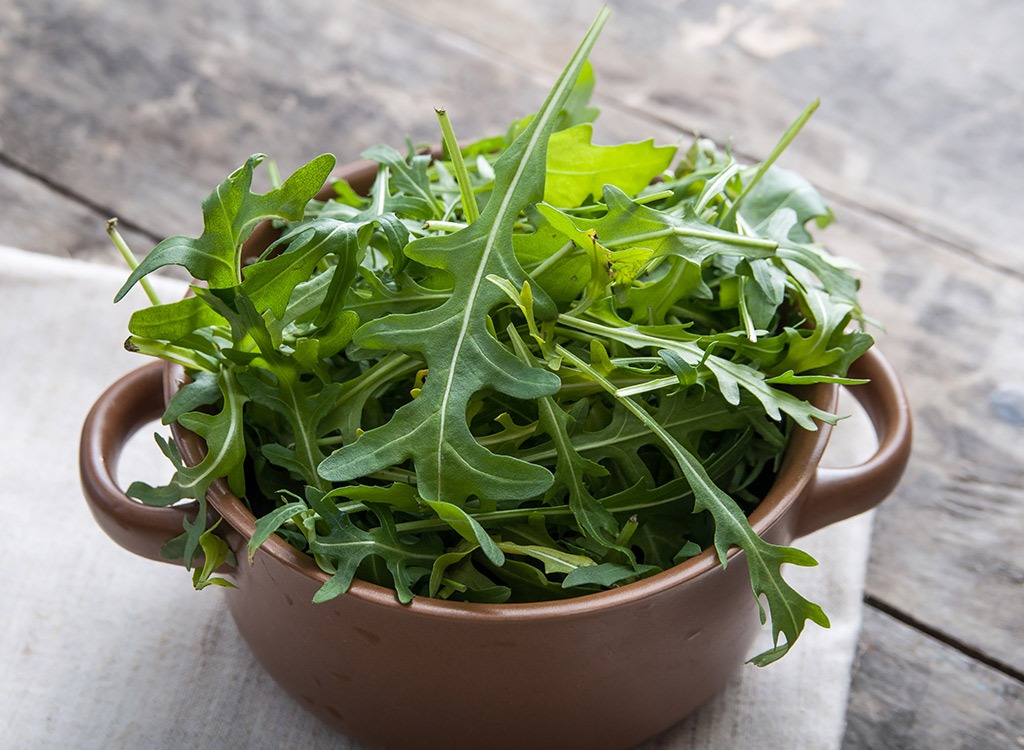
Rich in disease-fighting chemicals and nutrients that block larynx, mouth, lung, breast, skin and stomach cancer cells, spinach, kale, mustard greens, Swiss chard and romaine lettuce are all great greens to add your diet. Although each of these veggies deserve a place on your plate, spinach should definitely be your go-to if you have to pick just one—especially if you’re a fan of red meat. Why? Popeye’s go-to green contains compounds that can actually block the carcinogenic organic compound PhIP, which is abundant in cooked red meat, say Oregon State University researchers.
Best Way to Eat It: Sauté spinach, mustard greens or Swiss chard with olive oil, onions and garlic for a quick and simple side dish. Try using kale and romaine lettuce as a salad base, or whip up our Baked Egg with Mushrooms and Spinach recipe.
Walnuts
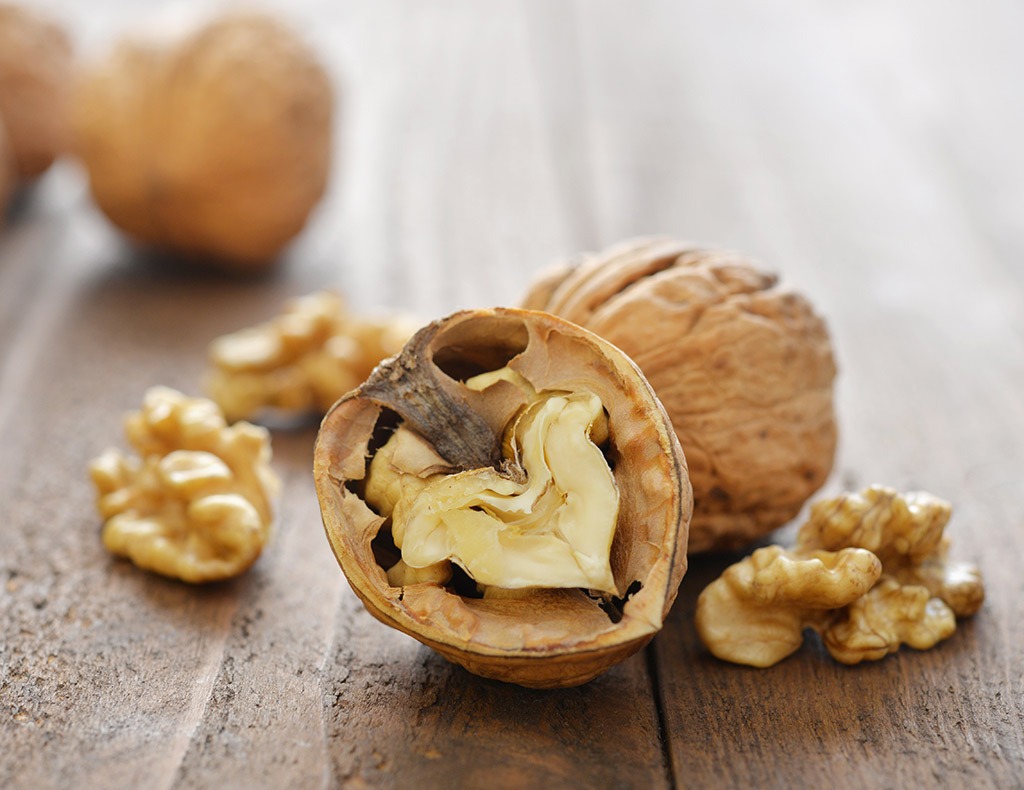
They may be small, but they pack a huge disease-fighting punch. Walnuts contain a vitamin called gamma tocopherol that stops the activation of Akt—an enzyme that is essential for cancer cell survival—without harming healthy cells. The nut also contains cholesterol-like molecules called phytosterols that slow the growth of breast cancer cells by blocking estrogen receptors. Additional pools of academic wisdom say walnuts can help ward off prostate, lung and colorectal cancers, so you should definitely find a way to work the mighty nuts into your diet.
Best Way to Eat It: Munch a one-ounce serving of walnuts as a midday snack, or sprinkle a small handful onto your salads in lieu of croutons. In the mood to cook? Make your own walnut butter by blending a tablespoon of canola oil in a food processor with 1 cup walnuts, 1/4th cup raisins and 1/4th teaspoon of cinnamon. Spread the concoction onto apple slices and enjoy as a healthy dessert or snack.
“Atlantic” or “Boston” Mackerel
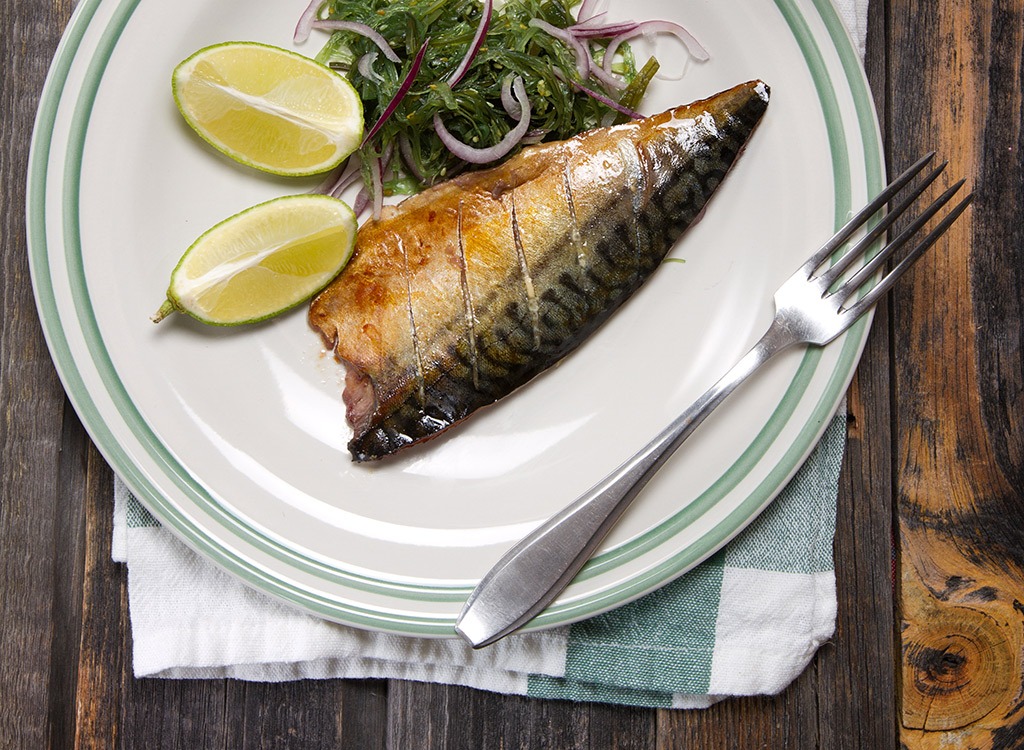
You likely already knew that the omega-3s and vitamin D in mackerel, herring and wild salmon were good for your heart, but did you know they could also help ward off the big “C”? One 12-year Harvard study of nearly 48,000 men found that those who consume these types of fatty fish more than three times a week are 40 percent less likely to develop advanced prostate cancer than those who consume the stuff just twice a month. The study authors credit the fish’s high omega-3s and vitamin D content for their protective properties. Ladies, fear not, we didn’t forget about you! Increased vitamin D intake was found to reduce breast cancer risk in women by up to 50 percent, according to Proceedings of the American Association for Cancer findings. The nutrient may also boost survival rates among lung cancer patients and can protect against colorectal cancer, say researchers.
Best Way to Eat It: Reduce your intake of processed meats like cold cuts, bacon and sausage, which have all been linked to an increased risk of cancer, and add more fatty fish to your diets throughout the week to ensure a steady supply of the protective nutrients. If you’re at a Japanese restaurant order the Saba Roll (it’s made with mackerel), and if you find yourself at an American restaurant look for herring or wild salmon dishes on the menu.